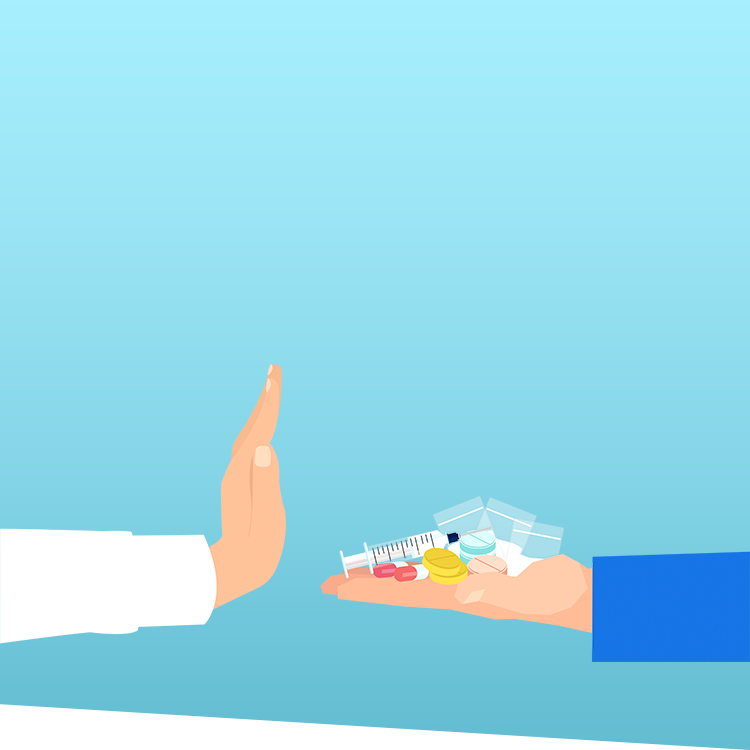Increasing levels of drug use is a problem among American youth. Today’s teenagers are likely to encounter and exploit a wide variety of dangerous substances, including prescription medications, marijuana, alcohol, opioids, methamphetamine, mushrooms, ecstasy, and other commonly used street drugs.
Drug use among preadolescents and adolescents is a high-profile public health concern. As a physical, social, and psychological “home away from home” for most children, schools have become a primary resource for substance abuse education, early identification, and prevention.
Additionally, substance use affects learning ability. Students under the influence of mind-altering chemicals are not ready to learn and risk long-term impairment of cognitive ability and memory. Using illicit substances is also linked to loss of motivation and self-discipline, absenteeism, and increased risk of antisocial and even violent behavior.
Poor school performance, underachievement, and truancy can all be manifestations of substance use.
The degree of illicit substance abuse among students has led to a societal search for ways to address this problem.
Here’s what your school can do to be a part of the solution.
Establish a Drug Prevention Program
Schools provide a good arena for drug prevention programs because prevention must focus on children before their beliefs and expectations about substance abuse are established. Schools also offer the most systematic way to reach young people, and they can promote a broad spectrum of drug-related educational policies.
Educators must share relevant and impactful information about drug use without enticing students to try drugs. Numerous practical, interactive, and developmentally appropriate curricula support these initiatives. Successful focus includes:
- enhancing students’ problem-solving skills;
- evaluating media influence;
- improving their self-esteem;
- reducing their stress and anxiety; and
- increasing their engagement in meaningful activities.
Prevention programs must be designed to do more than just provide facts about drugs and the impact drugs have on mental and physical health. Teaching students healthy coping skills plays a pivotal role in preventing future experimentation with dangerous substances.
Emphasis on emotional regulation is critical. Children must know how to:
- recognize their own negative feelings;
- identify and name what they are feeling;
- express and manage those feelings; and
- learn practical communication skills, including addressing conflict and asking for what they need.
They also need to explore what healthy peer relationships look like and learn refusal skills—learning to say “no.”
Educators can help students build “exit plans.” For example, some students may not be interested in alcohol or other drugs but will feel they need to participate just to fit in. Work with them to consider options and feel empowered when faced with peer pressure.

Tune in to live webinars every week during the school year to get specific, research-backed insight you can immediately apply at your school.
Leverage Relationships
Students spend most of their day in school, and school personnel are influential role models. Students who believe their teachers care about them are less likely to engage in risky behaviors, including drug and alcohol use.
Relationships with teachers and school counselors are among the most important and formative ones for many students. Those who have developed close ties to trusted adults are more likely to recognize the many ways substance abuse can negatively impact their future. Ensure all students are connected with teachers they trust and respect—teachers who know them well enough to identify warning signs.
Establish firm boundaries that allow teachers to share relatable stories about smart decisions regarding alcohol and other drugs. These stories could illustrate the consequences of engaging in risky behavior or stories about experiences with difficult decisions prioritizing personal well-being over friendships.
Create an Early Intervention/Wellness Team
Every staff member should know the warning signs of substance use and the protocols for intervention. But there are faculty members that students gravitate toward—teachers students feel comfortable with. By identifying those individuals, you can create a “Wellness Team,” perhaps championed by a trusted school counselor. The adults on the team need not be credentialed counselors, but can be trained in strategies that add a layer of prevention and intervention for students who talk to them.
This team should be nondisciplinary. Instead, it should include adults who generate safe spaces for students to report concerns about their peers and worries about themselves.
The best strategies for substance abuse prevention and intervention are those that work for a school’s community and culture. Schools must enlist the help of parents and encourage similar discussions at home. When students hear the prevention message at school and home, they are much less likely to try drugs or alcohol. In addition, communities that can establish a positive peer prevention program will see even better results.
*Content courtesy of D&G Wellness Consulting.





